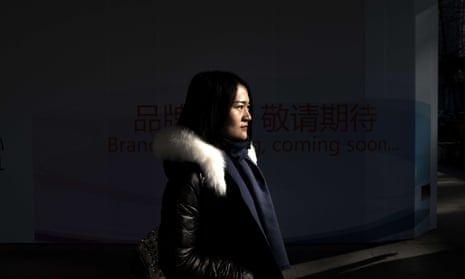That some of China’s most revered human rights lawyers have spent the last six months in secret detention – deprived of even the slightest contact with their families – was already shocking enough.
But the news this week that those lawyers – who had dedicated their lives to helping the country’s voiceless and vulnerable – now face life behind bars has stunned relatives, supporters and the human rights community at large.
Campaigners and experts have reacted with a combination of outrage and disbelief to what they see as a major escalation in President Xi Jinping’s war on those he views as Communist party foes.
That escalation means that top civil rights lawyers – including Wang Yu, Zhou Shifeng and Wang Quanzhang – now face political subversion charges that will not only end their careers but are also likely to strip them of their freedom for many years to come.
“It is basically about as serious as it gets for human rights advocacy,” said Eva Pils, an expert in Chinese law and human rights from King’s College London who knows several of the affected lawyers.
Pils summed up her reaction to the subversion charges in four words: “Shock. Dismay. Sinking feeling.” She added: “It is awful. At the moment there is really a sense of shock and people slightly reeling from this.”
Given the severe political chill that has descended on China since Xi took power in 2012, few had expected those caught up in last July’s crackdown on outspoken human rights lawyers to be treated leniently.
But Beijing’s decision to level formal charges of “subversion of state power” – rather than the lesser crime of “inciting subversion” – against some of the crackdown’s highest-profile targets caught many off guard.
“I never thought the lawyers would be charged with subverting state power. I never expected news like this,” said Li Yuhan, who represents Wang Yu, after she was informed of her client’s predicament at 10am on Wednesday.
Ren Quanniu, a lawyer for Zhao Wei, a 24-year-old legal assistant facing the same charges, said her formal arrest notice had left him perplexed.
“I thought they might have written it down wrongly,” he said. “Inciting subversion of state power is completely different to subverting state power – the latter is much more serious. It means you took real actions.”
Joshua Rosenzweig, a Hong Kong-based human rights expert, said Beijing’s unexpected escalation sent a message that refusing to dance to the Communist party’s tune could now be viewed as “tantamount to subversion”.
“[I felt] a certain amount of disbelief. I’ve been watching China and watching this space so to speak for more than a decade now and this really surprised me,” he said.
Initially, China’s Communist party-controlled media painted the crackdown as part of a government attempt to “tame disruptive and badly behaving lawyers”. Xinhua, the official news agency, took aim at “lawless lawyers” who it claimed had been “rabble-rousing in the streets”.
“[But] that narrative seems to have really shifted now towards presenting a group of lawyers at the centre of some sort of conspiracy to undermine the political regime as a whole,” said Rosenzweig. “That is a pretty serious allegation and it takes [things] a step further. It is a much more serious accusation against a group of lawyers than we have seen in the past.”
Pils said the decision to resort to political subversion charges represented “a very different, much more public, assertive, brazen way of saying we don’t tolerate human rights advocacy. It is a signal that the party-state really means to move against human rights advocates. You sort of feel that they really mean essentially to just get rid of this form of lawyering, they want to get rid of forceful legal advocates.”
On Thursday, as the families of those lawyers yet to be formally charged braced for bad news, the party-controlled Global Times lashed out at western critics of the crackdown. In an editorial, the newspaper accused “overseas forces” of being too quick to defend the jailed lawyers and added: “Have faith in the court and the progress of rule of law in China.”
Few experts do. Pils said Chinese law stipulated that those convicted of being ringleaders involved in a case of political subversion could be jailed for life. Those deemed to have taken “active part” in such a plot faced sentences of up to 10 years.
“It’s a political crime and what it means, in the Chinese system, is that they are facing a very, very strong likelihood of being found guilty and going to prison and it is hard to think of ways in which this system would allow these people to present any meaningful defence,” she said.

Pils said she was at a loss to explain how China might credibly argue that a small group of human rights lawyers had been conspiring to topple the 87 million-member Communist party.
“What was the plot? Where was the scheme?” she said. “It is difficult to make sense of.”
You Minglei, whose young wife, Zhao Wei, now faces years behind bars, is another struggling to digest the week’s dramatic developments.
“At most I thought the charge would be ‘inciting the subversion state power. But beyond my expectations they went straight for ‘subverting state power’,” said You, who has been refused access to his wife since she was seized on 10 July last year. “That is too big a charge to put on such a little girl.”
He added: “I am indignant. [T]hat is complete nonsense. That is hilarious.”
Unfortunately, the charges are no joke.
Additional reporting by Christy Yao

Comments (…)
Sign in or create your Guardian account to join the discussion